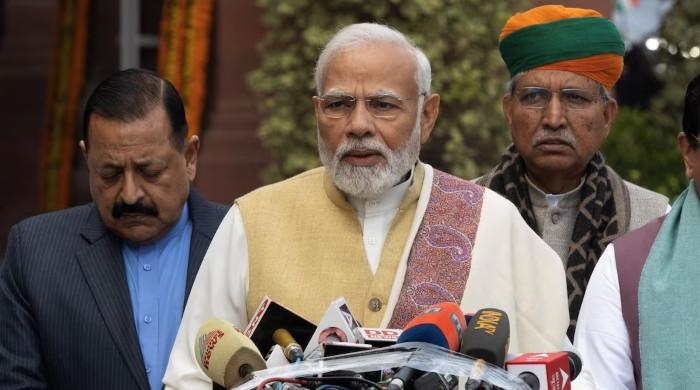Experts Voice Concern Over Modi’s Rhetoric and Mental Health in the Subcontinent
ISLAMABAD: Leading psychiatrists and public health specialists voiced apprehension on Saturday that the combative pronouncements of Indian Prime Minister Narendra Modi are jeopardizing the psychological well-being of millions across the region. Experts noted that despite the mental pressure from increased regional tensions, Pakistanis have displayed remarkable strength when facing external threats.
While recognizing this collective fortitude, mental health practitioners emphasized that resilience alone is insufficient and must be reinforced through sustained public mental health strategies.
During the inaugural and technical sessions of the 5th National Conference on Social Psychiatry, prominent Pakistani psychiatrists characterized the Indian prime minister as “mentally unstable” and suggested the need for a psychiatric assessment. They contended that Modi’s provocative remarks and frequent calls for conflict could worsen mental health problems in the region, particularly considering the presence of two nuclear-armed nations with a long history of disputes.
The conference, centered on the theme of “Trauma, Disaster and Terrorism,” was organized by the Department of Psychiatry and Behavioural Sciences at Watim Medical and Dental College, Rawalpindi, in partnership with the Health Services Academy (HSA), Pakistan Association of Social Psychiatry, Pakistan Medical Association (PMA) Islamabad, Pakistan Academy of Family Physicians, and other medical organizations.
Insights on Negativity and Well-being
In his keynote address on “Mitigating Negative Thoughts for Positive Behaviour and Happiness in Public Health of Pakistan”, Professor Shahzad Ali Khan, Vice Chancellor of the Health Services Academy, stated that the core of negativity in Pakistani society originates from a culture of blame.
“The peak of negativity is reached when individuals cease self-reflection and begin accusing others,” he noted, pointing out that this conduct is pervasive throughout society, impacting even healthcare professionals burdened by extended work hours, economic strain, and inadequate institutional support.
Professor Shahzad highlighted that the groundwork for an individual’s attitude is established during early education; regrettably, numerous educators are themselves undertrained and lack motivation, fostering negativity from an early age.
Recommendations for Cultivating Positivity
“Since altering the negativity of others is challenging, prioritize your own well-being. Refrain from blaming others, enhance your capabilities, and embrace positivity,” he advised. He also underscored the crucial role of the family in nurturing mental health, advocating for united endeavors to safeguard it from breakdown.
Addressing Trauma and Mental Health Support
Professor Dr Mazhar Malik, President of the Pakistan Association of Social Psychiatry and chief organizer of the conference, cautioned that threatening statements from leaders like Narendra Modi are deeply traumatizing people across the subcontinent. “Statements from powerful figures create fear, confusion, and altered public behaviour,” he stated.
Professor Malik noted that Pakistani society has endured numerous traumatic events for decades, including major earthquakes, floods, pandemics, terror attacks, and economic downturns.
He pointed out that trauma has infiltrated homes, communities, and workplaces, and that government bodies have not provided sufficient mental health care, leaving people to manage in silence. He affirmed that the conference is intended to offer psychological “first aid” and to develop lasting rehabilitation plans for affected people.
The Need for Mental Health Awareness and Treatment
Dr Jamal Nasir, former Punjab Health Minister, mentioned that a significant portion of Pakistanis experience some type of mental health issue, but due to societal stigma and misperceptions about psychiatry, most avoid seeking help.
He emphasized that mental health is a medical field, and those facing trauma and stress should be encouraged to seek professional advice without feeling embarrassed.
Professor Dr Wajid Ali Akhunzada, President of the Pakistan Psychiatric Society (PPS), also addressed the participants and emphasized the increasing necessity for psychiatric and psychological services in the country.
He stated that the impact of untreated mental illness is quietly overwhelming communities and weakening national resilience when faced with adversity and conflict.
Several other mental health authorities, academics, and healthcare professionals participated in the event, which was attended by numerous medical students, psychiatrists, and psychologists from Islamabad and Rawalpindi.



Comments (0)
No comments yet. Be the first to comment!
Leave a Comment